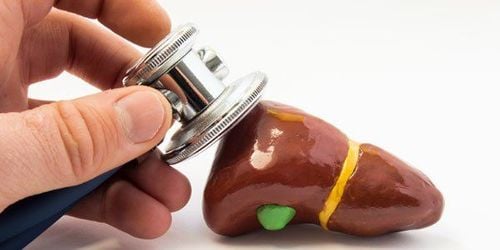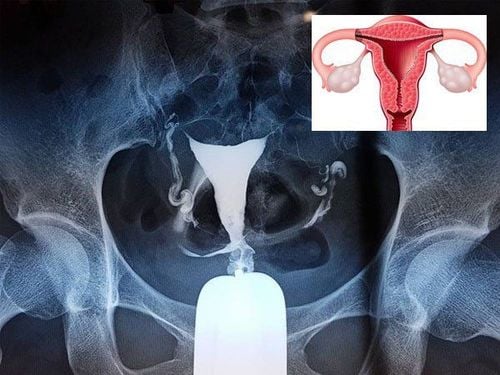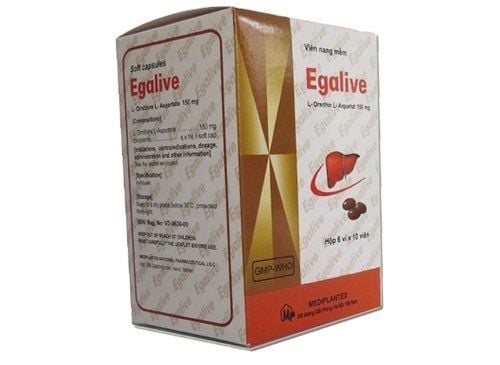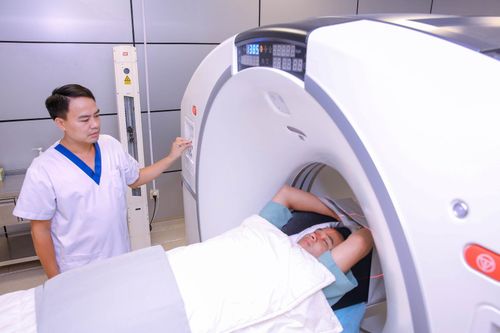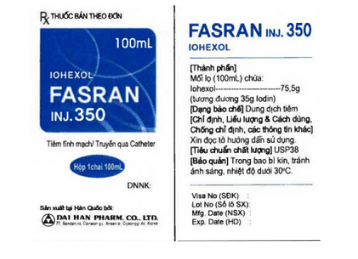This is an automatically translated article.
The article was professionally consulted by Specialist Doctor I Tran Cong Trinh - Radiologist - Radiology Department - Vinmec Central Park International General Hospital. The doctor has many years of experience in the field of diagnostic imaging.Magnetic resonance imaging of the liver with tissue-specific contrast agents is a safe and easy method to perform. This is a promising new direction to help increase the rate of detection and early diagnosis of liver cancer.
1. The role of liver magnetic resonance imaging with tissue-specific contrast agents
According to the World Health Organization (WHO), liver cancer is the third leading cause of cancer death in the world, after lung and stomach cancer. On average, there are half a million new cases of liver cancer each year worldwide. The main cause of liver cancer is chronic hepatitis caused by hepatitis B virus (HBV) and hepatitis C virus (HCV). Vietnam is one of the countries with a high prevalence of hepatitis leading to many people with liver cancer. On average, over 10,000 new cases of liver cancer are detected every year in the country.Liver cancer, if detected early and treated promptly, the 5-year survival rate is over 80%. However, liver cancer is a silent progressive disease, in the early stages patients often have no symptoms, so most patients are detected when the disease has advanced.
Previously, the diagnosis of liver cancer was based on biopsy of tissue samples or cells taken from the tumor. Many cases have had a common computed tomography or magnetic resonance imaging (MRI) scan of the liver and still need a liver biopsy to confirm the diagnosis. However, in cases of liver cancer tumors with a diameter of less than 20mm, biopsies are very difficult and risky. Magnetic resonance imaging with liver tissue specific contrast (Primovist) is a new method used in recent years for early screening and diagnosis of small-sized and atypical primary liver cancer. The liver tissue-specific contrast agent, when injected into the body, changes the magnetic properties of neighboring water molecules, helping to improve the quality of the liver magnetic resonance images. Magnetic resonance imaging of the liver with tissue-specific contrast agents helps to screen and detect the disease at an early stage, giving many patients a better chance of survival.
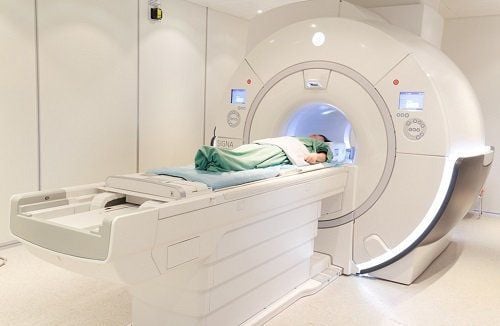
Chụp cộng hưởng từ mang lại chất lượng hình ảnh rõ nét, an toàn và không xâm lấn
In liver cancer, 90% of cases cannot absorb and metabolize specific contrast agents, this is important for early screening of liver cancer, especially in patients with hepatitis B, C perennial. Since the advent of specific contrast agents, the number of cases requiring biopsies has decreased significantly. In addition, liver magnetic resonance imaging with tissue-specific contrast can also help differentiate adenomas (in hepatocellular adenoma), FNH (in focal nodular hyperplasia), diagnosis of biliary tract disease, metastasis and assess residual liver function before surgical resection of the liver tumor .
2. How do tissue-specific contrast agents work?
The liver tissue-specific contrast agent Primovist, with a fecal weight of 725.71 g/ml, is a water-soluble, paramagnetic enantiomer. Primovist has a contrast-enhancer effect mediated by gadoxetate, an ionic complex formed by gadolinium and the ethoxybenzyl-diethylenetriamine-pentaacetic acid linkage. When taking liver magnetic resonance imaging, Gadolinium ions shorten the relaxation time, helping to increase the signal and contrast images. In just one injection, the tissue-specific contrast agent has two properties:Extracellular, vascular properties in the kinetic phase, similar to conventional Gadolinium. Hepatobiliary properties in the late phase 10-20 minutes, 50% of the drug is excreted in the bile, 50% is excreted by the kidneys. Thus, liver magnetic resonance imaging with tissue-specific contrast helps to investigate the perfusion and late-phase dynamics of the liver parenchyma-specific in a single scan. Helps to increase detection and tissue characterization of liver lesions, especially in cases of primary liver cancer. This method has high accuracy, sensitivity 81-94% and specificity up to 81-100%
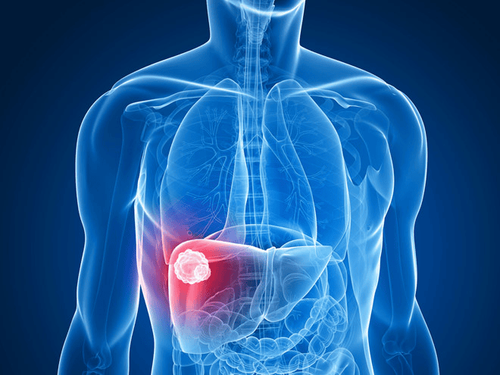
Chụp cộng hưởng từ gan với chất tương phản đặc hiệu mô giúp phát hiện các tổn thương gan
3. Steps to perform liver magnetic resonance imaging with tissue-specific contrast agent
Because the resonance imaging equipment is affected by metal, the patient needs to remove metal objects such as bracelets, watches, rings,... Electromagnetic devices such as credit cards, ATM cards, etc. The magnetic key can be erased when entering the machine room, so it needs to be kept outside the shooting room. Patients need to notify medical staff if they have instruments and devices in their body such as artificial heart valves, vascular stents, bone-joint screw braces, IUDs,...Time of resonance imaging from the liver with tissue-specific contrast agents usually lasts about 25 minutes. In the imaging room, the technician will instruct the patient to lie on the table in a comfortable position so that the patient can lie still during the scan. Patients will be taught how to breathe for better image quality.
During the imaging process, the commonly used pulse sequences are SE, STIR T2W cross-sectional and horizontal, T1W before drug investigation. After injection of magnetic contrast agent, examine the dynamics of the arterial, portal, equilateral, and late phases after 20 minutes. The GRE and phase-contrast pulse sequences used for fat detection were investigated prior to injection. Diffusion technique (DWI) is currently being studied and applied in cancer to assess tumor stage and response to treatment.
The patient will be alone in the MRI room, but the medical staff is always observing and monitoring the patient. Tissue-specific contrast agents are very safe, and allergic reactions such as urticaria and pruritus are rare.
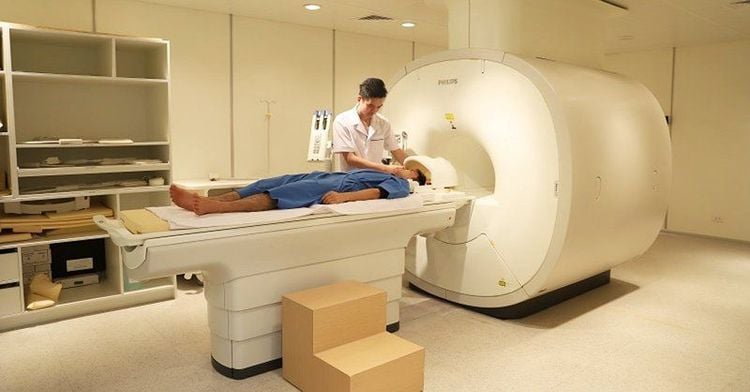
Người bệnh được hướng dẫn nằm ngửa trên bàn chụp
Liver magnetic resonance imaging with tissue-specific contrast is the most advanced method of liver investigation today, and is a high-end magnetic resonance technique with high value in liver diseases. Therefore, in order to bring the most accurate results when performing a liver magnetic resonance imaging, you should choose reputable addresses and hospitals that support modern MRI machines and own an examination room that meets the standards of the Ministry of Health. medical staff, and at the same time have a team of qualified and experienced doctors, in order to get the most accurate results for quick treatment, without leaving dangerous complications later.
Vinmec International General Hospital is the first unit in Southeast Asia to put into use the new 3.0 Tesla Silent MRI machine from the US manufacturer GE Healthcare. The machine currently applies the safest and most accurate magnetic resonance imaging technology available today, without using X-rays, non-invasively. Silent technology is very beneficial for patients who are young children, the elderly, patients with weak health or have just had surgery.
Please dial HOTLINE for more information or register for an appointment HERE. Download MyVinmec app to make appointments faster and to manage your bookings easily.




